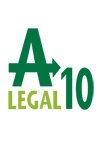Best Conveyancing Lawyers in Bree
Share your needs with us, get contacted by law firms.
Free. Takes 2 min.
Free Guide to Hiring a Real Estate Lawyer
List of the best lawyers in Bree, Belgium
About Conveyancing Law in Bree, Belgium
Conveyancing covers the legal steps required to buy, sell, mortgage or otherwise transfer ownership of real estate. In Bree, which is located in the Flemish Region of Belgium, property transfers are formalized by a notary who prepares and records the notarial deed. Regional rules apply to taxes, permits and planning, so local Flemish law is important in addition to federal registers such as the cadastre and registration administration. Conveyancing includes title checks, confirming the absence of encumbrances, ensuring required permits and certificates are in order, and registering the transfer with the appropriate authorities.
Why You May Need a Lawyer
Notaries play a central role in Belgian conveyancing by creating the notarial deed and ensuring formal legal requirements are met. A lawyer offers a different and complementary service. You may need a lawyer if:
- There is a dispute about ownership, boundaries, servitudes or co-ownership rules.
- The transaction involves complex contracts, unusual clauses, cross-border elements, company ownership or inheritance issues.
- You need representation in negotiation, mediation or litigation related to the sale or planning decisions.
- You want pre-transaction legal advice that is partisan - a notary must be neutral and cannot act as a confidential advocate in adversarial matters.
A lawyer can review agreements, draft protective clauses, advise on tax or inheritance consequences, and represent you in court or administrative appeals.
Local Laws Overview
Key legal aspects to be aware of in Bree and the Flemish Region include:
- Notarial formalities - Transfer of real property is generally completed by a notary who prepares the authentic deed and ensures proper registration.
- Registration duties and VAT - Purchases of existing buildings are subject to registration duties - rates and possible reductions or exemptions are set by the region. New-build sales or substantial work by a VAT-registered builder may be subject to VAT instead of registration duties. Always check current regional rules and confirm with a notary or tax advisor.
- Land registry and cadastre - The cadastre and public registers record ownership and mortgages. A full title search is a standard part of conveyancing to reveal mortgages, liens, easements and other encumbrances.
- Mortgages and securities - Mortgage and hypothec registers create formal security over property. Lenders typically require notarial acts and registration to perfect their rights.
- Urban planning and building permits - Brest falls under Flemish planning rules. Building permits and environmental permits have been integrated into the Flemish environmental and planning permit system. A property’s permitted use, zoning and any local spatial plans or restrictions must be checked before purchase.
- Local pre-emption and constraints - Municipalities may have pre-emption rights or additional rules for certain parcels - for example for social housing, agricultural land or protected heritage sites. Heritage protection and environmental contamination checks may be required for some properties.
- Energy and technical certificates - Sellers must provide mandatory technical documents, which commonly include an energy performance certificate and required safety attestations for installations. Exact required certificates depend on the region and property type.
- Co-ownership rules - Apartments and shared buildings are governed by special co-ownership laws. These rules address common charges, maintenance obligations and voting rights in the association of co-owners.
- Language and procedure - In the Flemish Region the official language is Dutch. Documents and administrative procedures will generally be in Dutch, though parties can agree on other languages for private documents if both sides accept.
Frequently Asked Questions
What is the role of the notary in a property transaction?
The notary prepares and executes the authentic deed that transfers ownership, checks title and encumbrances, calculates and arranges payment of registration duties or VAT, ensures formal compliance and registers the transaction with public registers. The notary is an impartial public official who protects the legality of the operation but does not represent one party against the other.
Do I need a lawyer in addition to a notary?
Not always. For straightforward purchases the notary often covers most legal formalities. You should consider a lawyer when there are disputes, complex contractual terms, inheritance or company ownership issues, or if you want dedicated representation in negotiations or appeals.
How do I check whether the seller really owns the property?
A notary will conduct a title search at the cadastre and other public registers to confirm ownership and reveal mortgages, liens, easements and other restrictions. You can also ask the seller for recent extracts and certificates, but the notary’s search is the formal safeguard.
What taxes and costs should I expect when buying in Bree?
Expect registration duties or VAT depending on whether you buy an existing property or a new build. In addition there are notarial fees, administrative costs and possible realtor fees. Regional rates and exemptions vary - ask your notary for a full cost estimate before signing.
Can I withdraw after signing a private purchase agreement?
Private sale agreements typically bind the parties. Whether you can withdraw and what happens to any deposit depends on the contract terms and applicable law. There is no automatic universal cooling-off period. Always have a lawyer or notary review the preliminary agreement before you sign.
What checks should I do before buying?
Key checks include title and encumbrance search, building and planning permit status, zoning and local plans, technical inspections, energy and safety certificates, soil contamination risk, and mortgage or rental obligations affecting the property. If in doubt, order a professional building inspection.
How long does a typical conveyancing process take?
Timing varies. After a private agreement is signed it often takes several weeks to a few months to complete notarial formalities, secure mortgages and obtain required certificates. Delays can occur for permit clarifications or complex title issues.
What happens if there are undisclosed defects after purchase?
If the seller concealed defects or acted fraudulently you may have remedies under Belgian law, including compensation or rescission in serious cases. Time limits and legal procedures apply, so consult a lawyer promptly if you discover significant undisclosed problems.
Are there special local rules in Bree I should know about?
Municipal spatial plans, local pre-emption rights and any site-specific constraints set by the City of Bree can affect a transaction. Check with the municipal urbanism department and have your notary review local planning documents before completing the purchase.
Where should I file documents and register the new ownership?
The notary normally takes care of registration with the appropriate registration office and the cadastre. Registration makes the transfer public and protects ownership against third parties.
Additional Resources
Useful bodies and sources of assistance include:
- The local notary office in Bree or a notary practising in the Limburg province - notaries play the central role in conveyancing.
- Fednot - the Belgian federation of notaries - for general information about notarial practice.
- Federal finance services - for cadastre, registration and tax administration information regarding property transactions.
- The Flemish government - for regional rules on planning, building permits and environmental permits.
- Municipality of Bree - the urbanism or planning department for local zoning, building permit and municipal pre-emption information.
- Local bar association or the Orde van Vlaamse Balies - if you need a lawyer or legal aid information.
- Consumer and housing advice centres - for practical guidance on buying and selling in Belgium.
Next Steps
If you need legal assistance with conveyancing in Bree, follow these practical steps:
- Gather the basic documents - property title if available, identity documents, previous sale deed, cadastral references, technical and energy certificates.
- Get pre-approval for mortgage financing if you need a loan. This helps set your budget and speeds up the process.
- Contact a local notary early - request a written fee estimate and ask what documents you must provide. The notary will perform the title search and explain taxes and registration costs.
- If there are complex legal issues or disputes, seek an independent lawyer who specialises in real estate law. Ask for a written engagement letter and fee estimate.
- Check municipal planning and zoning at the City of Bree urbanism department to confirm permitted use and any local constraints.
- Arrange any desired technical inspections and verify mandatory certificates are in place before signing a purchase agreement.
- Review the preliminary agreement with your lawyer or ask the notary to explain all clauses and consequences before you sign.
- When ready, proceed to the notary for the authentic deed, ensure taxes and fees are arranged, and keep copies of all registered documents for your records.
If you are unsure at any stage, seek professional advice - a timely check by a notary or lawyer can prevent costly problems later in the conveyancing process.
Lawzana helps you find the best lawyers and law firms in Bree through a curated and pre-screened list of qualified legal professionals. Our platform offers rankings and detailed profiles of attorneys and law firms, allowing you to compare based on practice areas, including Conveyancing, experience, and client feedback.
Each profile includes a description of the firm's areas of practice, client reviews, team members and partners, year of establishment, spoken languages, office locations, contact information, social media presence, and any published articles or resources. Most firms on our platform speak English and are experienced in both local and international legal matters.
Get a quote from top-rated law firms in Bree, Belgium — quickly, securely, and without unnecessary hassle.
Disclaimer:
The information provided on this page is for general informational purposes only and does not constitute legal advice. While we strive to ensure the accuracy and relevance of the content, legal information may change over time, and interpretations of the law can vary. You should always consult with a qualified legal professional for advice specific to your situation.
We disclaim all liability for actions taken or not taken based on the content of this page. If you believe any information is incorrect or outdated, please contact us, and we will review and update it where appropriate.










